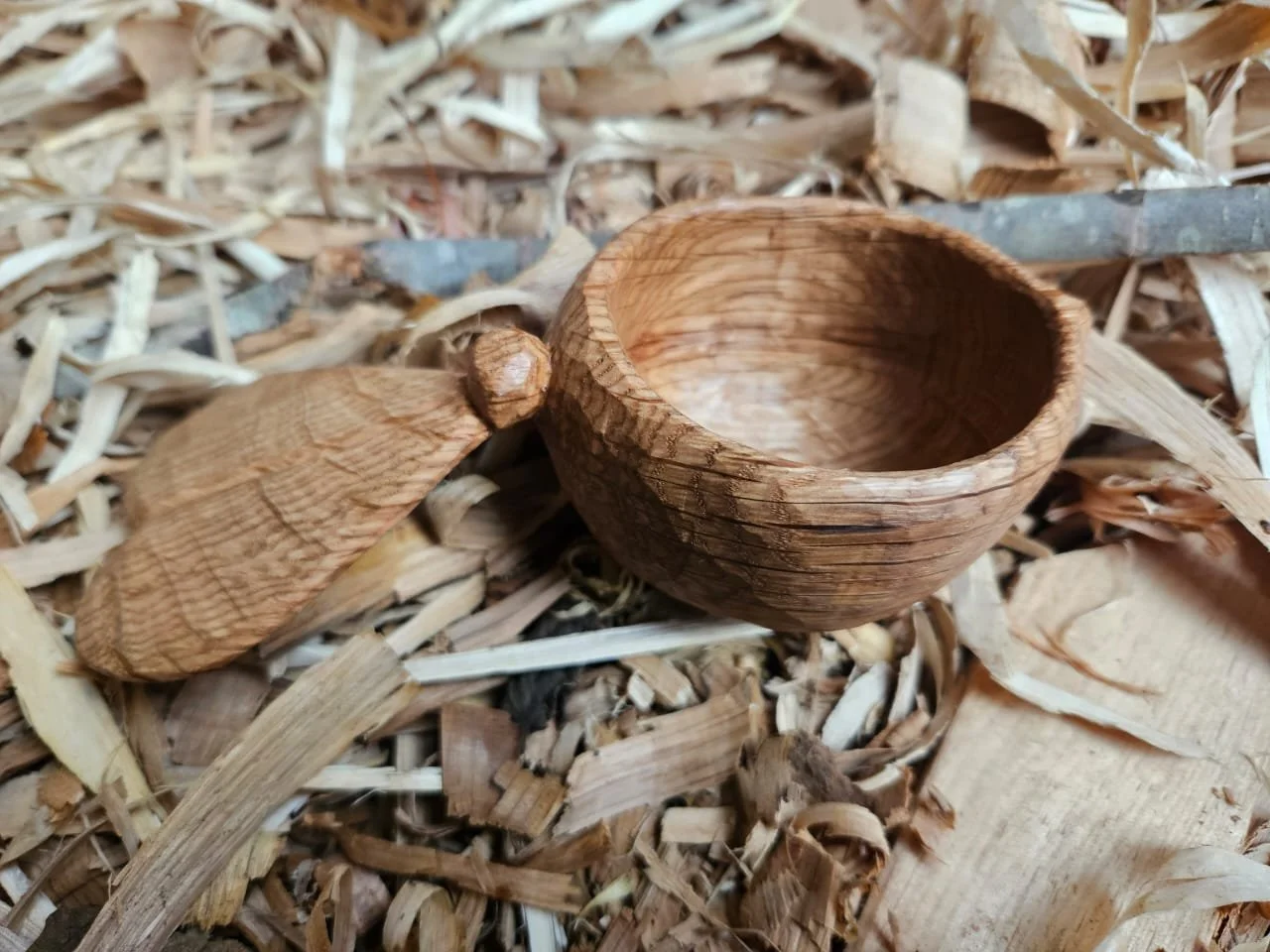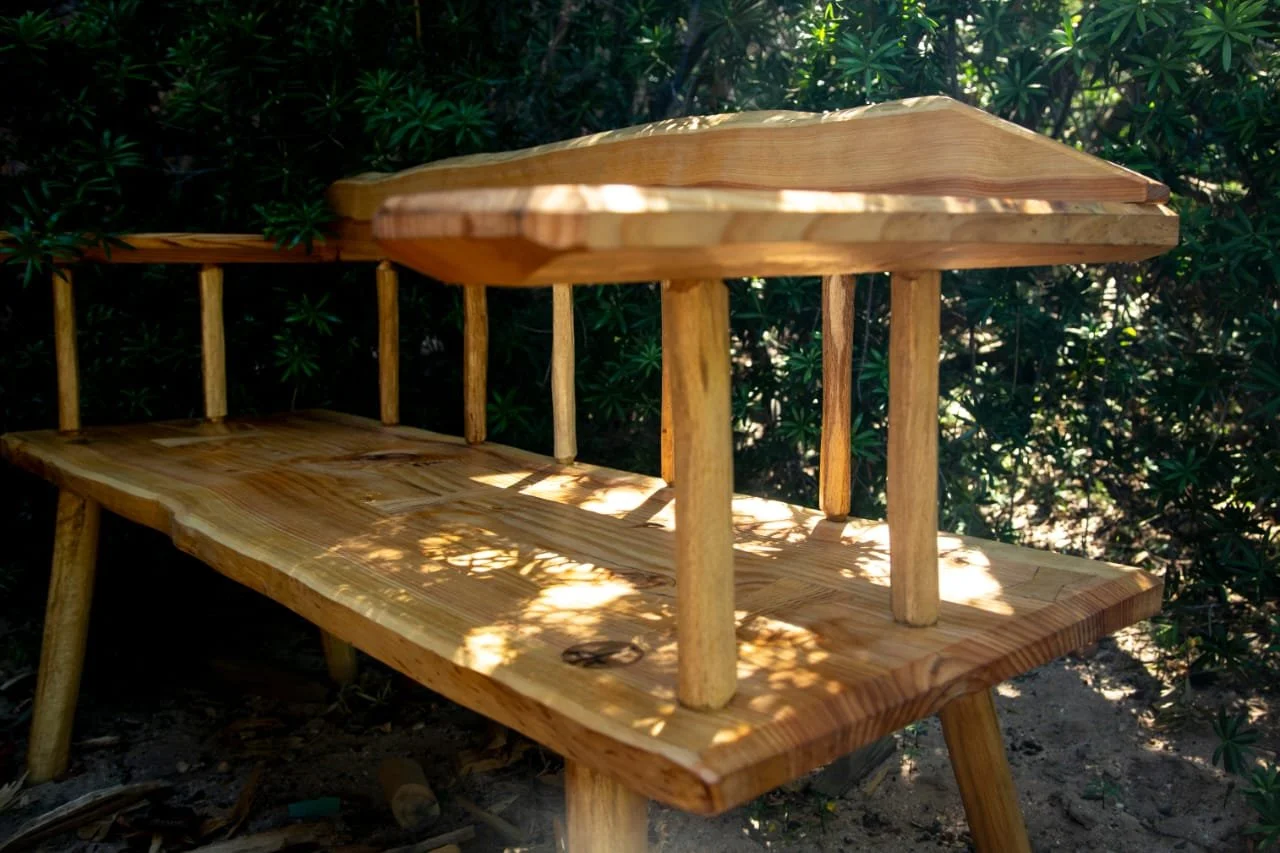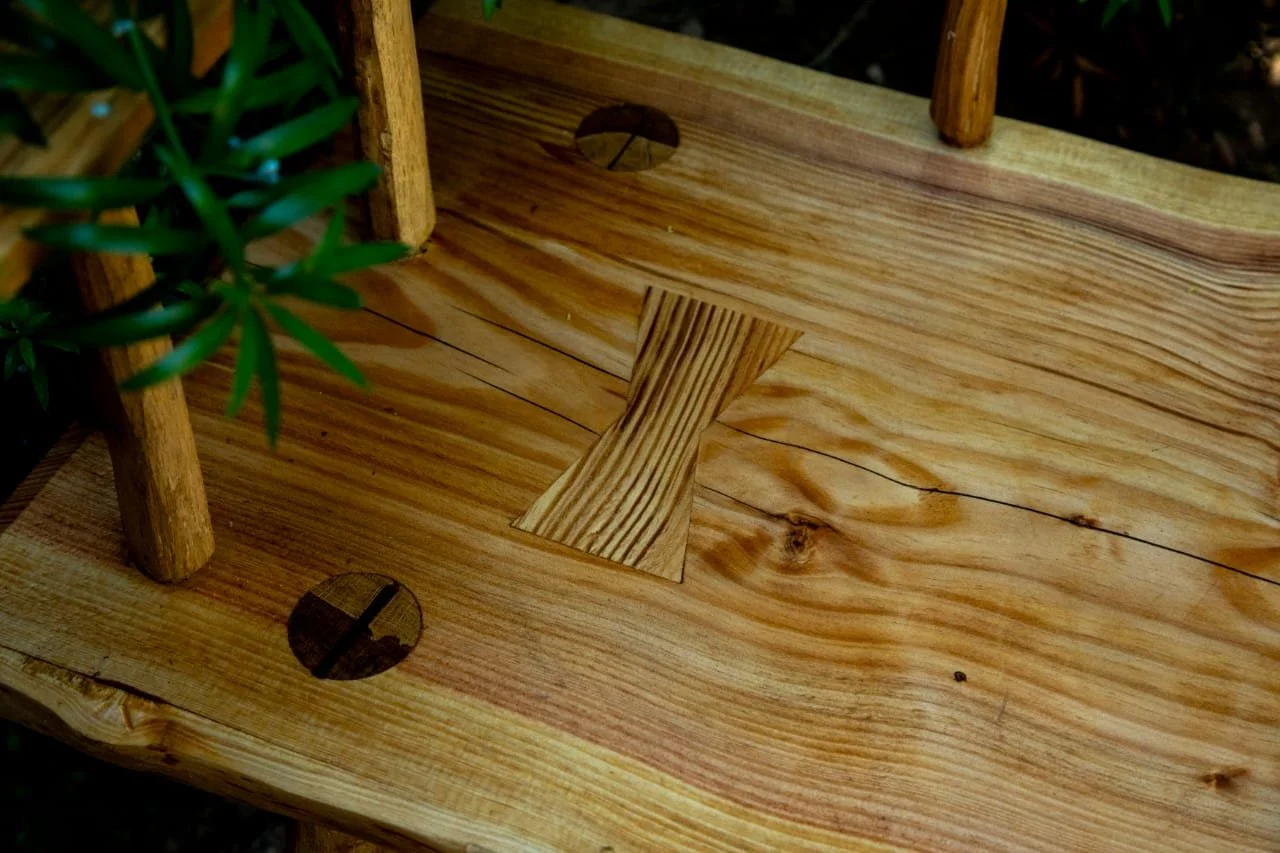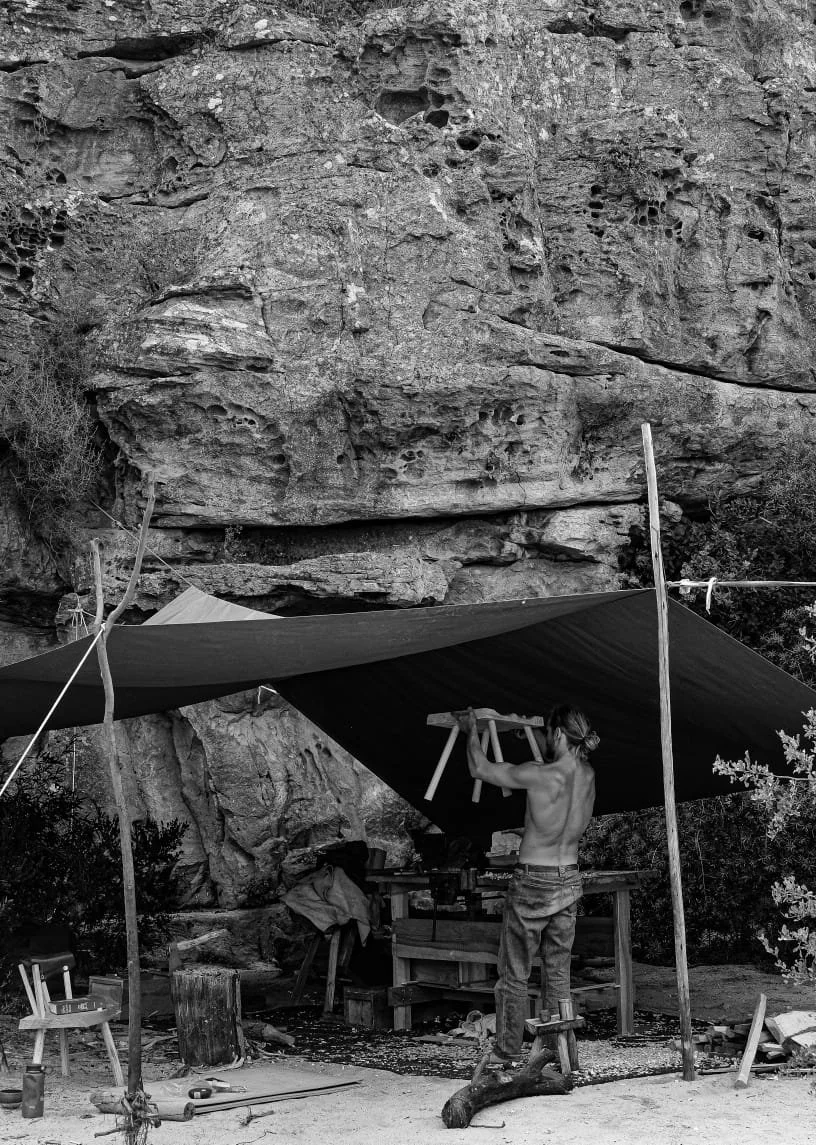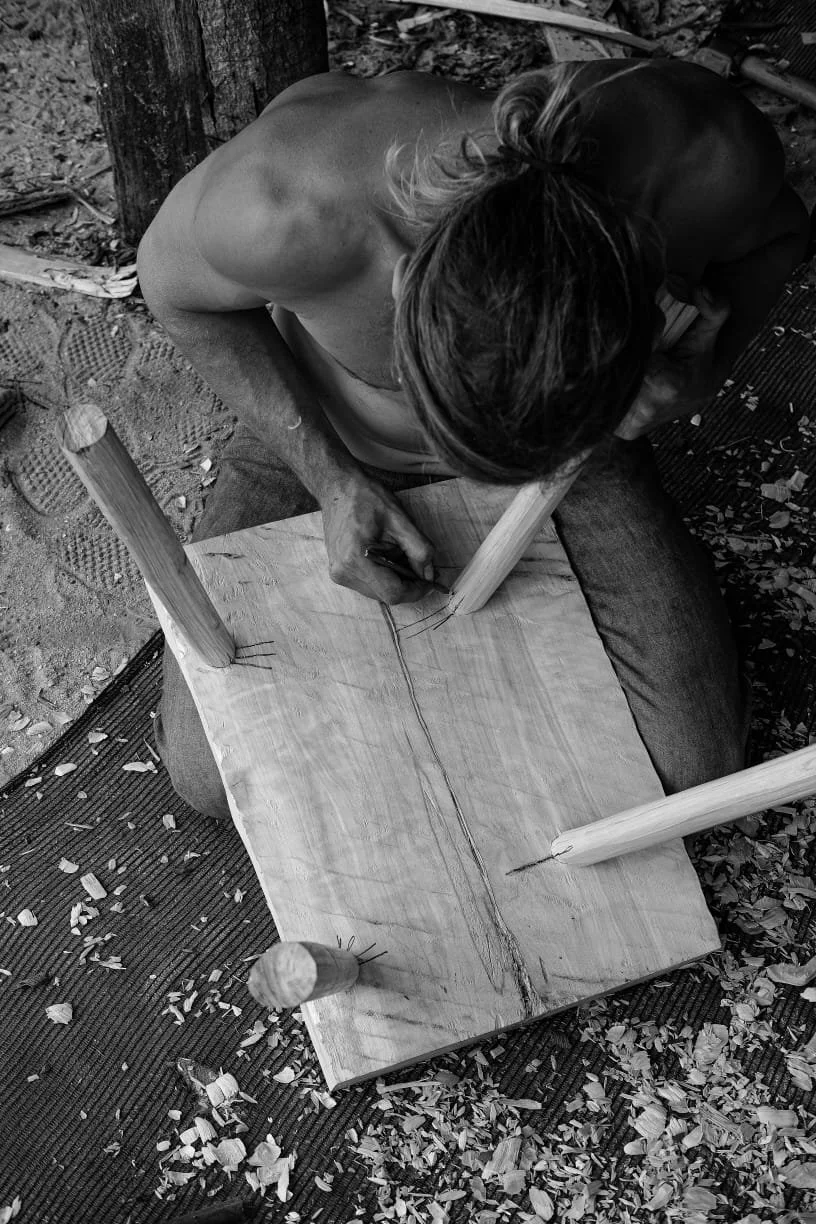Crafting Mirrors
There is something quintessentially human in making. This act, these hands, the creation of our own lives. It precedes all notions of economy and accumulation, all ideas of ownership and worth. From the stone axe to the Gucci handbag, the objects we make mediate our existence; they are reflections of what we value, how we live, and what we believe progress to be.
In handcraft, we respond to a deeper need, a remembering of our place in the natural world. Through making, we relocate ourselves within the intricate, chaotic complexity of the living earth.
“I make as an act of sanity,” says woodworker Gabriel Powell, whose practice centres on handcraft as both devotion and defiance. “An act of defiance in the face of a material culture that cannot love a tree, cannot see its personhood. I make with my hands to honour this body and its finite, breathing moments. Through this, I honour the world from whose nature I became.”
The Kinbi Bench
Made from locally milled, windfallen stone pine and hand-harvested oak, the Kinbi Bench was crafted in the Cederberg, South Africa, entirely with hand tools, combining English green woodworking and Japanese traditional techniques.
The name Kinbi emerged from a conversation between friends, a portmanteau of kinship and bi (two). Each of the two benches is a two-seater, an invitation into “being with”: with another person, with a poem, with a cup of coffee, or simply with presence itself.
The slow, attentive process of handcrafting mirrors this very idea, being with the tools, the wood, the wind, the sun, and the long, often-excruciating process of becoming. “It’s an act of being with the Cederberg,” Gabriel says, “and with my small, transient, feral community.”
A Life in Making
Gabriel’s work bridges worlds, from off-grid building projects in the Peruvian Amazon and Brazil’s Mata Atlântica forest to ecological design studies at Schumacher College in England. Now based between Cape Town and the Cederberg, he works from tree to object, using only windfallen or ethically sourced timber.
His philosophy is simple yet radical: to make useful, beautiful things that serve human needs, without extracting from the planet. “As a maker,” he says, “I hope to tell a story about how we can revalue the material world and the beauty of natural materials, without falling back into the patterns of mindless consumerism that plague our culture.”
